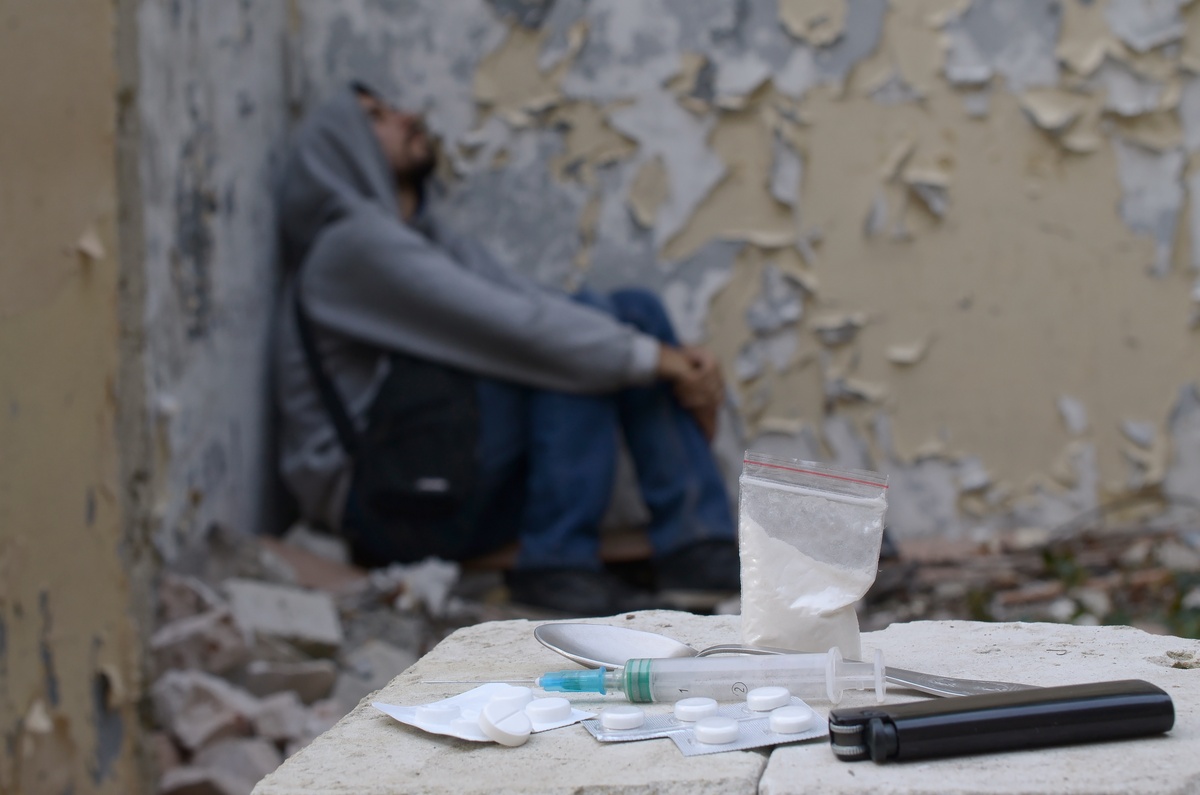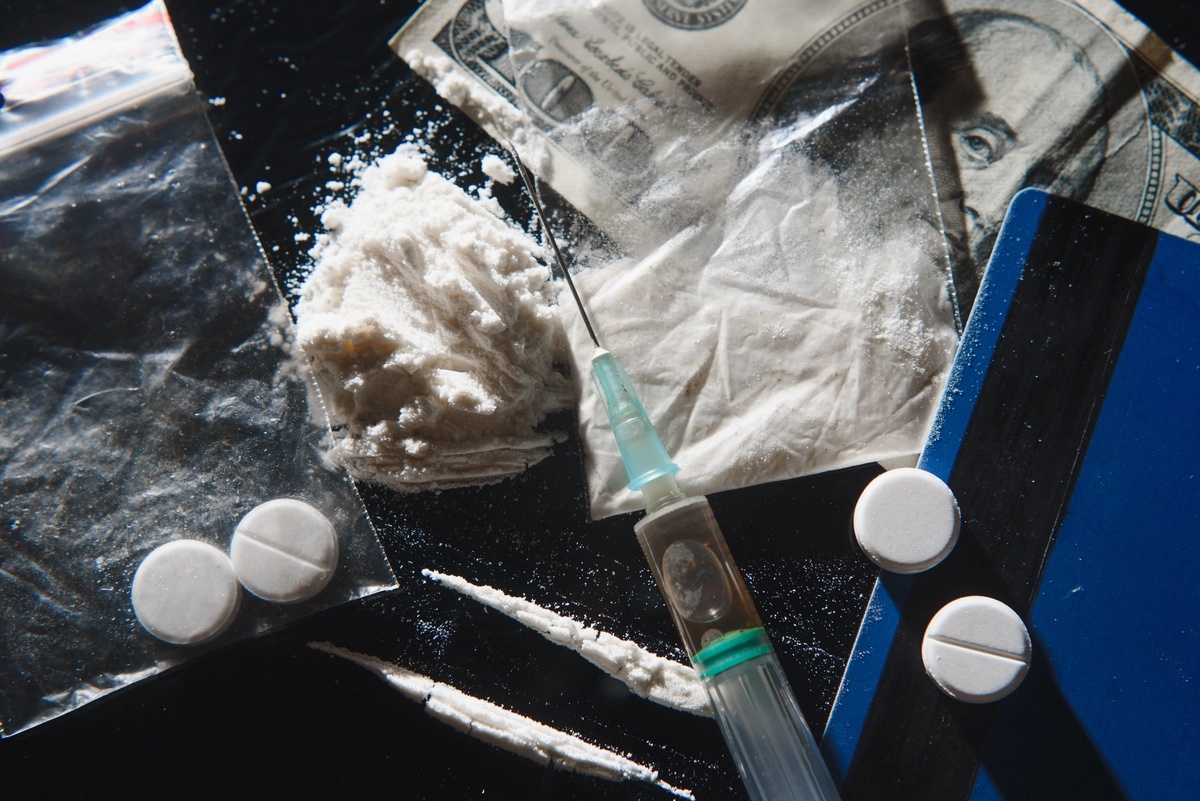Cocaine Addiction Treatment: Symptoms, Causes, & Recovery Options


Cocaine is among the most addictive drugs out there, and we understand how even slight abuse can lead to an addictive cycle that damages your health, relationships, and more. But with proper cocaine addiction treatment, you can start anew. Explore the symptoms, causes, and treatment options for cocaine addiction here, and call The Forge Recovery Center today to embark on your recovery journey.
What Is Cocaine?
Cocaine is a powerful stimulant drug that is derived from the coca plant. It is highly addictive and can have serious effects on the brain and body. It typically comes in the form of a white powder and is often snorted, although it can also be injected or smoked. The drug produces feelings of euphoria, increased energy, and heightened alertness, but it can also lead to dangerous side effects such as increased heart rate, high blood pressure, and even overdose. Long-term use of cocaine can result in addiction and the severe health consequences associated with it.
What Is Cocaine Addiction?
Cocaine addiction is characterized by the compulsive use of cocaine despite negative consequences. It's a chronic brain disease that affects the brain's reward system, leading to cravings and a loss of control over drug use. People who are addicted to cocaine may experience withdrawal symptoms when they try to stop using the drug, such as fatigue, depression, and increased appetite.
Cocaine addiction treatment often involves therapy, support groups, and sometimes medication to help manage cravings and withdrawal symptoms. It is essential for individuals struggling with cocaine addiction to seek help from healthcare professionals to overcome this challenging condition.

Signs of Cocaine Addiction
Cocaine addiction carries certain physical and behavioral signs to be aware of. By knowing the signs and symptoms, you or a loved one can get the support you need early on, rather than risking a worsening addiction. Here’s an overview of the signs and symptoms to look out for:
Common Symptoms
When someone is addicted to cocaine, they may experience increased energy levels, euphoria, and a sense of heightened alertness. These symptoms often lead to repetitive and compulsive behaviors associated with drug seeking and use.
Physical Signs
Physical signs of cocaine addiction can manifest in various ways. Look out for dilated pupils, significant weight loss, and noticeable changes in sleep patterns. These physical changes can be telltale signs of a developing addiction.
Behavioral Changes
Behavioral signs are crucial indicators of cocaine addiction. Pay attention to any secretive behavior, unexplained financial problems, or neglect of important responsibilities. These behavioral changes can disrupt relationships and daily routines.
Find Hope at The Forge Recovery Center
Our admissions coordinators are standing by 24/7 to answer your questions, provide guidance, and schedule an initial assessment. Let us help you determine if our programs are the right fit to meet your needs.

Cocaine Addiction Treatment Overview
Cocaine addiction treatment typically entails detoxification before starting treatment at an inpatient or outpatient rehab center. Let’s run through the process, from detox to aftercare:
Detoxification
When treating cocaine addiction, detox is crucial as the initial step to rid your body of the drug. The process typically lasts up to a week, focusing on managing withdrawal symptoms. However, it's important to note that detox alone isn't enough for long-term recovery.
Inpatient Treatment
For severe cases, an inpatient cocaine addiction treatment program can offer significant benefits. In these facilities, you receive 24/7 care and support in a structured environment. The intensive therapy sessions and medical supervision provided can help you overcome the challenges of addiction effectively.
Outpatient Care
Opting for outpatient care allows you to undergo treatment while continuing to live at home. These programs offer flexibility, enabling you to balance your daily responsibilities with therapy sessions. Various types of outpatient therapies are available, catering to different needs during the recovery journey.
Benefits of Outpatient Care:
Flexibility in scheduling appointments.
Opportunity to apply newly learned coping skills in real-life situations.
Aftercare
After completing your primary cocaine addiction treatment, aftercare programs play a vital role in maintaining sobriety. Support groups, counseling sessions, and ongoing therapy sessions are integral parts of aftercare. They provide you with the necessary tools to deal with triggers and prevent relapse effectively.
Benefits of Aftercare Programs:
Help in building a strong support system post-treatment.
Assist in developing healthy coping mechanisms for long-term recovery.
Therapies for Cocaine Addiction
Therapies used in cocaine addiction treatment encompass therapies like cognitive-behavioral therapy (CBT) and group therapy, as well as specialized treatments such as medication-assisted treatment (MAT):
Behavioral Therapies
Behavioral therapies play a crucial role in addressing cocaine addiction by focusing on modifying harmful behaviors and thoughts associated with drug use. Different interventions, like cognitive-behavioral therapy and motivational interviewing, help individuals develop coping strategies and resist triggers.
They’re effective in treating cocaine addiction as they delve into the root causes of substance abuse, helping individuals understand and change their behaviors to achieve long-term recovery.
Medication-Assisted Treatment (MAT)
Currently, there are no FDA-approved medications specifically designed for cocaine detoxification or sustained treatment. However, healthcare providers may prescribe certain medications to manage cravings and alleviate withdrawal symptoms during the recovery process.
While MAT is not the primary method for treating cocaine addiction, it can be utilized as a supplementary tool to support individuals in their journey toward sobriety.

What Causes Cocaine Addiction?
Like many substance use disorders, cocaine addiction doesn’t typically stem from a single cause. Rather, it’s often the result of a combination of variables, from your genetic predisposition to addiction to environmental influences and underlying mental health conditions. Let’s explore these causes further:
Genetic Factors
Genetic predisposition plays a significant role in the development of cocaine addiction. Research indicates that certain genes can increase your vulnerability to substance abuse. These genetic variations can affect how your body processes cocaine, influencing your likelihood of becoming addicted and the effect it has on your blood flow and heart.
Family History of Addiction
Studies have shown that individuals with a family history of addiction are at a higher risk of developing cocaine addiction. If your parents or close relatives have struggled with substance abuse, you may inherit genetic traits that make you more susceptible to addictive behaviors.
Environmental Influences
Your environment also plays a crucial role in shaping your susceptibility to cocaine addiction. Exposure to environments where drug use is prevalent can increase your chances of experimenting with and eventually becoming dependent on cocaine. Factors such as peer pressure, easy access to drugs, and stressful living conditions can all contribute to the development of addiction.
Early Exposure to Cocaine
Growing up in an environment where drug abuse is normalized can desensitize you to the risks associated with cocaine addiction. Traumatic experiences, such as childhood trauma or chronic stress, can further exacerbate your vulnerability to substance abuse, leading to a high need for detox and cocaine addiction treatment.
Psychological Factors
Cocaine addiction is not solely determined by genetics or environmental influences; psychological factors also play a critical role. Mental health conditions like depression, anxiety, and trauma can drive individuals to seek solace in drugs like cocaine. Using cocaine may initially provide temporary relief from emotional distress, leading to a cycle of dependence and addiction.
Moreover, underlying psychological issues, such as low self-esteem or unresolved trauma, can fuel the need for substances like cocaine as a coping mechanism. The euphoric effects of cocaine may serve as a temporary escape from negative emotions or painful memories, reinforcing addictive patterns over time and highlighting the importance of a comprehensive cocaine addiction treatment program that includes therapy, support groups, and a duration of care tailored to individual recovery needs.
Are You Struggling with Mental Health or Addiction?
We Can Help. Call Us Now!
CALL: 877-839-1772
Adverse Effects of Cocaine Addiction
Cocaine addiction can have short-term effects that provide immediate gratification, as well as long-term consequences when used over extended periods. These effects can be detrimental to your physical and mental well-being:
Short-Term Impact
When you consume cocaine, it swiftly elevates your heart rate and blood pressure, leading to a surge in energy and alertness. The drug induces intense feelings of euphoria, confidence, and increased sociability, making you feel invincible temporarily. However, these effects are short-lived, compelling you to seek more cocaine to sustain the initial high.
Long-Term Consequences
Chronic abuse of cocaine can result in severe long-term consequences that affect various aspects of your health and life. Prolonged use of cocaine can lead to cardiovascular damage, including heart attacks and strokes. Respiratory problems such as difficulty breathing or lung damage may arise from extended cocaine abuse. Neurologically, chronic cocaine use can cause cognitive impairments and memory issues.
Your mental health is also at risk with long-term cocaine addiction, potentially leading to anxiety disorders, depression, or even psychosis. Relationships with loved ones may deteriorate due to erratic behavior and mood swings caused by prolonged drug abuse. Ultimately, your overall well-being suffers significantly as the addiction takes a toll on every aspect of your life.
Risks of Combining Substances
Cocaine is commonly mixed with other substances such as alcohol and opioids, at the risk of severe health consequences. Let’s explore the dangers of polydrug use as it relates to cocaine abuse and addiction:
Mixing Dangers
When you mix cocaine with other substances, you significantly increase the risks associated with drug use. Combining cocaine with alcohol can lead to the formation of cocaethylene, a substance that intensifies toxicity in your body. This dangerous combination can have severe effects on your physical and mental health, increasing the chances of adverse outcomes.
Polydrug use involving cocaine and heroin, commonly known as a "speedball," poses a grave threat due to the contrasting effects of stimulant and depressant drugs on your system. The mixture amplifies the risk of overdose and respiratory depression, making it a highly dangerous practice that can have fatal consequences.
When you mix cocaine with marijuana, the interaction between these substances can result in unpredictable outcomes and heightened side effects. This combination increases the risks associated with polydrug use, leading to potential health complications and adverse reactions in your body.
Common Drug Combinations
Cocaine & Alcohol
Combining cocaine and alcohol creates cocaethylene in your body, which is more toxic than either substance alone. This interaction not only intensifies the effects of each drug but also poses a serious threat to your overall well-being. The dual abuse of these substances can have detrimental impacts on both your physical health and mental stability.
Cocaine & Heroin
The combination of cocaine and heroin, referred to as a "speedball," presents a significant danger due to the conflicting nature of stimulants and depressants. This mixture can overwhelm your body's central nervous system, leading to an increased risk of overdose and respiratory issues. Engaging in this practice puts you at high risk for life-threatening consequences.
Cocaine & Marijuana
Mixing cocaine with marijuana can create an unpredictable cocktail of effects on your body. The synergy between these substances may result in unexpected reactions and intensified side effects, posing a considerable threat to your well-being. Engaging in polydrug use involving cocaine and marijuana heightens the risks associated with substance abuse.

Recognizing the Need for Treatment
Knowing when to seek cocaine addiction treatment is a matter of recognizing the signs of addiction and withdrawal, and seeking out professional help accordingly. Here’s how you can identify the signs and symptoms so that you know whether you or a loved one need support on the road to recovery:
Identifying Signs of Cocaine Addiction
When it comes to recognizing signs of cocaine addiction, pay attention to changes in behavior and mood. You may notice increased secrecy, financial issues, or sudden mood swings. Physical signs like weight loss, dilated pupils, and frequent nosebleeds can also indicate cocaine misuse. If you or someone you know shows these signs, seeking professional help is crucial.
Cocaine Withdrawal Symptoms
After discontinuing cocaine use, you might experience various withdrawal symptoms. These can include fatigue, increased appetite, and intense drug cravings that are hard to resist. Psychological symptoms such as anxiety, depression, and irritability are common during cocaine withdrawal. It's essential to be aware of these challenges and seek support when needed.
Physical Symptoms
Fatigue
Increased appetite
Restlessness
Psychological Symptoms
Depression
Anxiety
Intense drug cravings
Long-Term Risks
Untreated cocaine addiction poses significant long-term risks to your well-being. It can lead to severe consequences for both your physical health and mental state. The impact extends beyond individual health, affecting your social relationships and overall quality of life. Seeking early intervention and comprehensive cocaine addiction treatment is vital for mitigating these risks.
Physical Health
Cardiovascular issues
Respiratory problems
Neurological damage
Mental Well-Being
Increased risk of mental health disorders
Cognitive impairments
Personal Relationships
Strained family dynamics
Isolation from friends and loved ones
Find Hope at The Forge Recovery Center
Our admissions coordinators are standing by 24/7 to answer your questions, provide guidance, and schedule an initial assessment. Let us help you determine if our programs are the right fit to meet your needs.

Managing Cocaine Withdrawal
The withdrawal symptoms of cocaine addiction can be daunting, and management is crucial to either continue through cocaine addiction treatment or sustain sobriety post-rehab. Here’s a summary of the challenges and strategies you can use to cope with these symptoms:
Challenges
Dealing with cocaine withdrawal can be tough. Symptoms like fatigue, depression, and intense cravings make it challenging. Withdrawal may lead to irritability, mood swings, and difficulty concentrating. It's crucial to manage these symptoms effectively.
Coping Strategies
Seeking medical supervision is vital during withdrawal. Professionals can provide support and monitor your progress closely. Support groups can offer understanding and guidance. Engaging with others who have gone through similar experiences can be beneficial.
Importance of Professional Help
Seeking professional help is essential for a successful recovery. Medical professionals can tailor your cocaine addiction treatment plan to your specific needs. Therapists can assist in developing coping mechanisms and strategies to prevent relapse. Their expertise is invaluable in the recovery journey.

Cocaine Abuse & Addiction Prevalence
Cocaine use and addiction is a widespread issue that spans outside of the United States, carrying a range of societal consequences and highlighting the need for awareness-raising efforts. Below, we’ve gathered some recent data concerning cocaine abuse to keep you informed:
Global Impact
Cocaine addiction is a significant global issue, with substance use disorder affecting millions worldwide. According to the World Drug Report, an estimated 19 million people aged 15-64 used cocaine in 2018. In the U.S., 2% of the population aged 12 years and older (5.5 million people) were estimated to have used cocaine that same year. And in 2023, over 870,000 Americans tried cocaine for the first time — reflecting the seriousness of cocaine’s prevalence and impact.
Societal Consequences
The repercussions of cocaine addiction extend beyond individual health implications to societal challenges. Families often bear the emotional and financial burden of supporting loved ones struggling with addiction.
Communities grapple with increased crime rates, strained healthcare systems, and reduced workforce productivity due to cocaine abuse. The need for comprehensive intervention strategies is crucial to mitigate these adverse effects.
Awareness & Treatment Services
Raising awareness about the dangers of cocaine addiction is vital in combating its spread. Educational campaigns targeting both youth and adults can help prevent initiation or escalation of drug use.
Access to quality cocaine addiction treatment services is essential for individuals battling substance use disorder. Effective interventions include behavioral therapies, support groups, and medications to manage withdrawal symptoms and cravings.
Closing Thoughts
You've gained valuable insights into cocaine addiction, its symptoms, treatment options, and associated risks. Understanding the complexities of addiction is the first step towards recovery. Recognizing the signs and seeking specialized therapies can make a significant difference in overcoming cocaine addiction. Managing withdrawal symptoms and avoiding substance combinations are crucial aspects of the cocaine addiction treatment process. Stay informed about the prevalence of cocaine abuse to protect yourself and your loved ones.
If you or someone you know is struggling with cocaine addiction, don't hesitate to seek help from professionals. Remember, recovery is possible with the right support and determination. Your journey towards a drug-free life starts with a decision to reach out for assistance and commit to the recovery process.
Are You Struggling with Mental Health or Addiction?
We Can Help. Call Us Now!
CALL: 877-839-1772
Cocaine Addiction Treatment in Orange County
Cocaine addiction doesn’t define you. It’s not a part of who you are, or the main character in your story — you are. Don’t give cocaine the power to run your life; instead, choose the path of recovery to mend your mind, body, and relationships. Help is available for you or your loved one to overcome addiction, and the team at The Forge Recovery Center would love to help.
With the cocaine addiction treatment experts and a range of evidence-based therapies at your disposal at our Southern California addiction center, you’ll be supported through every twist and turn of your recovery journey.
See our treatment modalities below, and call The Forge Recovery Center today to take the first step toward a cocaine-free lifestyle.
Treatment Modalities We Offer
At The Forge Recovery Center, we offer a variety of proven treatment methods to guide your path to recovery, including:
Case Management
Case management offers vital support to patients, guiding them through the required time and resources for recovery, thereby enhancing their likelihood of overcoming opioid addiction.
CBT
Cognitive-behavioral therapy (CBT) is a potent technique that assists individuals in recognizing and modifying detrimental thoughts and behaviors associated with drug misuse, including fentanyl abuse.
DBT
Dialectical behavior therapy (DBT) aids individuals in acknowledging their emotions and pursuing positive change, essential for those with high substance tolerance and battling addiction.
EMDR
Eye movement desensitization and reprocessing (EMDR) therapy focuses on the traumatic memories that could instigate addiction, utilizing eye movements to process these events and diminish their impact on one’s life.
Experiential
Participation in experiential activities enables those in recovery to face past traumas, often a major factor in opioid misuse, and discover new ways to appreciate life without substance reliance.
Family Counseling
Family counseling is instrumental in bolstering an individual’s resistance against fentanyl addiction, with family members significantly contributing to promoting healing and resilience.
Group Therapy
Group therapy cultivates an environment where individuals can exchange their experiences and offer mutual support, emphasizing that no one is isolated in their struggle against addiction.
Individual Therapy
Customized individual therapy sessions tackle the unique hurdles and behaviors of an individual, steering them toward a life devoid of drugs and alcohol.
MAT
Medication-assisted treatment (MAT) merges behavioral therapies with approved medications to tackle opioid use disorders, offering assistance when needed.
TMS
Transcranial magnetic stimulation (TMS) employs magnetic fields to stimulate brain cells, providing hope in curbing intense cravings and disrupting the cycle of addiction.
Motivational Interviewing
Motivational interviewing enables individuals to uncover their motivation for change, particularly beneficial for those grappling with cocaine or fentanyl addiction.
Trauma-Informed Care
Trauma-informed care considers how trauma symptoms may affect a person’s addiction and recovery, guaranteeing a compassionate and effective treatment strategy.



